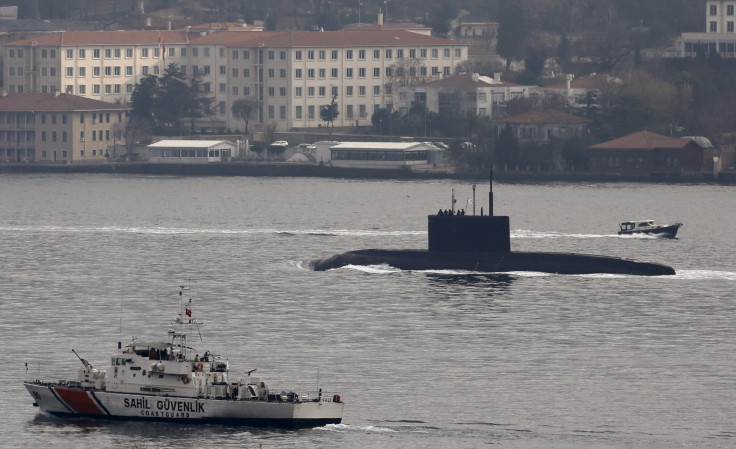Russia Military Spending 2016: Navy, Air Force To Modernize, Expand, Kremlin Says

The Kremlin announced Monday it would purchase 200 planes and helicopters, as well as up to 30 ships and submarines annually to modernize its armed forces. The announcement comes amid high tensions between Ankara and Moscow following a Russian destroyer firing warning shots at a Turkish ship in the Aegean Sea over the weekend. Meanwhile, Russia’s economy continues to suffer from low oil prices and Western sanctions imposed in 2014 after the annexation of Crimea.
"There are plans for purchasing an annual 70-100 planes and more than 120 helicopters and up to 30 surface ships, submarines and special and auxiliary ships and 600 armored vehicles a year," Valery Gerasimov, chief of Russia’s General Staff, said, Russian news agency TASS reported. “The state program for armaments extending till 2021 will increase the share of modern weapons and military hardware to no less than 70 percent.”
Gerasimov said Russia would focus on further developing its naval and air power in the next decade. Russia’s armament plan for 2011-20 focused mainly on intelligence and communications equipment, as well as the country’s nuclear arsenal. As Russia continues airstrikes in Syria, the country’s Defense Ministry said 200 new or upgraded aircraft would be added to its fleet in 2016.
The military spending comes as oil prices languish at below $40 a barrel. Russia’s 2016 budget is based on oil prices remaining at $50 a barrel. The country’s budget deficit is projected to hit more than $21 billion in 2016, the Moscow Times reported.
Turkey downed a Russian aircraft last month claiming it had illegally entered sovereign airspace. The Kremlin has continued to deny it entered Turkish airspace, further raising tensions among Western allies.
"Russia and Turkey certainly have to re-establish the relations of trust that we have always had, but our patience has a limit," Minister of Foreign Affairs Mevlüt Çavuşoğlu said, Reuters reported Monday.
Çavuşoğlu accused Russia of targeting groups opposed to Syrian President Bashar Assad in its airstrikes in Syria instead of fighting the Islamic State terrorist group. Russia began conducting airstrikes there at the end of September.
© Copyright IBTimes 2024. All rights reserved.












